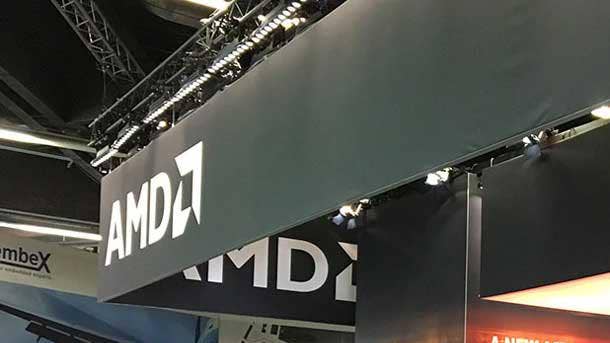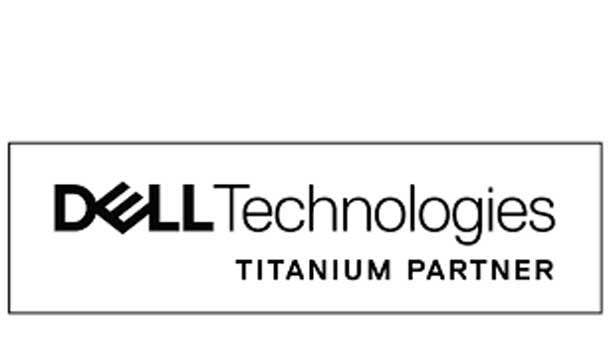5 Companies That Came To Win This Week
For the week ending March 25, CRN takes a look at the companies that brought their ‘A’ game to the channel.

The Week Ending March 25
Topping this week’s Came to Win list is Hewlett Packard Enterprise for launching a major new release of its GreenLake cloud service that greatly expands the platform’s Networking-as-a-Service capabilities.
Also making this week’s list is chipmaker AMD for debuting a new supercomputing GPU accelerator that steps up the company’s competitive game against rivals Nvidia and Intel. Secure browser developer Island, meanwhile, makes the list for an impressive funding round.
Leading solution and service providers CDI, Presidio and Kyndryl win applause for achieving Dell Titanium Black partner status. And Apple is on this week’s Came to Win list for reporting significant progress with its Green Bond initiative to reduce its carbon footprint.

HPE Ups Cloud Ante With Blockbuster HPE GreenLake Launch
Hewlett Packard Enterprise took its GreenLake game to a higher level this week when it debuted a new unified release of the HPE GreenLake cloud service, including the first standardized version of HPE GreenLake Networking as a Service.
The new release provides a complete, integrated, on-premises networking, storage and compute cloud services experience, which partners told CRN makes HPE GreenLake every bit as seamless as public cloud services from Amazon Web Services, Microsoft Azure and Google Cloud.
The release offers eight new HPE GreenLake enterprise NaaS offerings from the HPE Aruba business including Indoor Wireless as a Service, Outdoor Wireless as a Service and Remote Wireless as a Service. Also new is a Block Storage as a service offering and the Backup and Recovery Service.
HPE is also expanding sales of its GreenLake services through distributors, including TD Synnex, Ingram Micro and Arrow Electronics, by leveraging tight API integration with distributor cloud marketplaces.

AMD’s New Supercomputing GPU takes Aim At Nvidia, Intel
AMD this week launched the Instinct MI210, the company’s new data center accelerator GPU, which is designed to handle demanding AI and high performance computing workloads while utilizing a cost-saving PCI-Express interface.
The introduction of the MI210 is seen as a shot across the bow for data center computing competitors Intel and Nvidia, with the latter holding as much as 90 percent of the data center accelerator market last year.
The new Instinct accelerators can be deployed alongside AMD’s latest EPYC processors. The Lumi supercomputer at the Finland-based LUMI Leadership and Computing Facility, for example, is powered by AMD EPYC processors and Instinct MI200 accelerators.
Nvidia wasn’t standing still this week, however. The chipmaker, at its virtual Nvidia GTC conference, unveiled a new accelerated computing platform named for pioneering computer scientist Grace Hopper. The new Nvidia Hopper architecture is the foundation for the Nvidia H100 GPU that was also introduced at GTC.

CDI, Presidio and Kyndryl Achieve Dell Titanium Black Partner Status
Solution provider heavyweights CDI, Kyndryl and Presidio achieved Dell Technologies’ most elite and exclusive partner status of Titanium Black this week, giving them direct access to Dell executives as well as the best benefits in the Dell Technologies Partner Program.
The three solution providers join 16 other Titanium Black partners who previously achieved the uppermost echelon of channel companies who work closely with Dell.
The Titanium Black status recognizes Dell’s most strategic partners that are best equipped for the data-centric, multi-cloud world and supporting customers in their digital transformation journey, Dell global channel chief Rola Dagher told CRN.

Island Raises $115M To Safeguard BYOD Use, Expand Channels
Secure browser developer Island closed an impressive $115 million Series B round of funding this week that boosted the company’s valuation to $1.3 billion.
Island plans to use the additional funding to hire its first dedicated channel employees and invest in customer support technical resources. The Dallas-based company also plans to hire additional sales reps and sales engineers, expand its research and development efforts, and expand in the U.S. federal government space and in international markets.
Island’s secure browser is designed to protect contractors and bring-your-own-device employees who need to ensure that corporate data stays within a working environment and isn’t left on a laptop, phone or other device that’s neither owned nor controlled by a company.

Apple Spends $220 Million On Environmentally Friendly Projects In 2021
Apple wins kudos for spending some serious green on environmentally friendly projects in the last year, part of the tech giant’s $4.7 billion Green Bond effort launched in 2016.
Apple spent $220 million on 43 such projects in 2021, raising the total effort to $550 million on 50 projects since 2019. The projects meet Apple’s requirements for low carbon design and engineering, energy efficiency, renewable energy, carbon mitigation and carbon sequestration.
One example: The production of carbon-free “green aluminum” now used in every new iPad model and the latest MacBook Pro, MacBook Air, Mac Mini and Apple Watch. The smelting process created by Elysis uses hydroelectricity instead of fossil fuels and produces oxygen instead of greenhouse gases.
Altogether Apple said the environmental benefits tallied include the mitigation of 2.9 million tons of CO2 emissions, 1.85 million megawatt-hours of annual renewable energy generation, and 699 megawatts of newly installed renewable energy capacity.